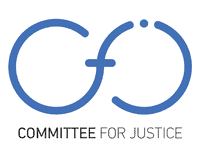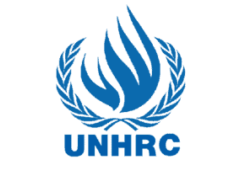UPDATES TO KAFALA
The definitive place to get the latest updates on Kafala.
Lebanon has approved a new work contract allowing foreign domestic workers to resign and keep hold of their own passport, but activists say the exploitative “kafala” system remains in place. The economic crisis-hit Mediterranean country is home to around 250,000 migrants, mostly women from Africa and Asia, who toil away in people’s homes as housekeepers, careers or nannies.
The kafala system regulates the lives of tens of millions of migrant laborers in the Middle East, but growing outrage over human rights abuses, racism, and gender discrimination has fueled calls for reform.
Migrant workers at RAMCO, a private engineering and construction company subcontracted by the Lebanese government to manage waste in Beirut and Mount Lebanon, released a statement detailing the horrific trials of Enayet Ullah. They recount that on April 8, the Bangladeshi worker experienced symptoms of mental illness and, as a result, was imprisoned underground, tortured and abused by his supervisor and security personnel. Three days later, security employees dragged him up to the canteen and attempted to choke him, nearly sending him to his death, if it weren’t for his compatriots and allied Indian workers who heard his cries and came to his rescue.
The committee also urged Lebanon to amend its legislation to ban racist hate speech against migrants and refugees, and to intensify its efforts to cooperate with Internet service providers and social media platforms to curb the spread of racism and offensive messages online. Expressing its concern about refugees, in particular Syrians, who have been victims […]
Ces femmes, qui viennent pour la plupart d'Éthiopie, arrivent via des agences privées, qui font tourner, avec l'aval de l'État libanais, un véritable circuit de trafic d'êtres humains.
Lebanon, stuck perilously in an unfortunate geographical location, plagued by poverty, economic warfare, inter-sect animosity, and now a global pandemic, regrettably has yet another problem; its infamous kafala system. This long-running system has allowed abuses of migrant domestic workers for such a time that it has become almost second nature to many families to ‘own’ a maid. Many of these workers have been forced to hand over their passports indefinitely to underhanded employers who have no interest in protecting their rights. Many are subjected to physical and emotional violence, unpaid overtime and no days off with no repercussions on the employers from an apparently unaccountable government. The kafala sponsorship system currently accommodates 250,000 foreign workers, who are legally bound to their employers and unable to leave their work without ‘permission’. Now, in the midst of an economic crisis, a post-explosion emergency and a global pandemic, many of these workers have no way out, and at dire risk of abuse and exploitation.
The Committee on the Elimination of Racial Discrimination today concluded its consideration of the combined twenty-third to twenty-fourth periodic report of Lebanon after its Experts raised questions about the kafala system for migrant domestic workers, the absence of a definition of racial discrimination, and the treatment of refugees, among others.
National Human Rights Commission has called on the government to strengthen its efforts to curb human trafficking by taking strong action to effectively prevent trafficking in person
ery year across the globe, thousands of women, men and children become victims of human trafficking. According to the United Nations Office on Drugs and Crime (UNODC), human trafficking is the “recruitment, transportation, transfer, harbouring or receipt of people through force, fraud or deception, with the aim of exploiting them for profit.” On International Day Against Trafficking in Persons, the National Human Rights Commission (NHRC) calls on the Government of The Gambia to strengthen its efforts to curb human trafficking, listen to and prioritize the fundamental needs of survivors, and put in place robust recovery, rehabilitation and reintegration programs . The theme for this year’s commemoration is “Victims’ Voices Lead the Way”.
Lebanon is currently suffering its most severe economic crisis since the Lebanese civil war of 1975–1990. After decades of theft, greed and incompetence among the country’s financial and political elite, as well as international actors, the currency lost over 80 percent of its value in a single year. Approximately half of the population is facing poverty. The crisis has also drawn global attention to the plight of the country’s many African and Asian female migrant domestic workers, who numbered upward of 300,000 prior to the collapse of the currency and nationwide protests in October 2019 this in a country of just over 4 million citizens.











